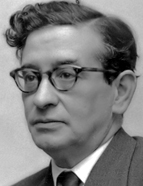

With the exception of two articles published in Nação Portuguesa —the official organ of Lusitanian Integralism—("A língua dos escritores portugueses" [The language of Portuguese writers] in the first issue of the 2nd series and "A língua portuguesa no Brasil" [Portuguese language in Brazil] in issue 11), O Seiscentismo em Portugal —which developed his graduation dissertation presented to the Faculty of Letters in Lisbon—was his first work to be published in book form, in 1923, and it was soon to have a significant impact in the media. Firstly, it sparked a polemic between António Sérgio (who published a review of Múrias' work in the magazine Lusitânia ) and António Sardinha (who responded in the same publication, defending the young integralist's work). Later, after a response from Sérgio that was published in Seara Nova after Sardinha's death, it was Múrias himself who published a series of articles attacking the seareiro in Nação Portuguesa , of which he was now the director. Sérgio's criticisms of the work of the young Manuel Múrias were not dissimilar to those he and other intellectuals had been making of the integralist ideology in general: a dogmatism underpinned by excessive (and poorly sustained) eruditeness; a positivist conception of history; a revisionist counter-revolutionary discourse based on the promotion of a supposedly paradigmatic period in Portugal's history (the 17th century); and an anti-rationalist mental attitude, based on tradition as a source of experience. Múrias followed these lines, echoing the works of Sardinha and other integralists in several passages, like his analysis of the Society of Jesus and Pombalism, for example. In any case, in O Seiscentismo em Portugal and the polemics surrounding this work also reveal, albeit in a somewhat incipient way, some of the main topics that would guide Manuel Múrias' historical thinking, which was developed in the second half of the 1920s and most of all over the following two decades. Firstly, in Estudos históricos [Historical Studies], a series of works published as a separate issue of Nação Portuguesa [Portuguese Nation], which he coordinated at the suggestion of António Sardinha in 1925, and in which he published "Cultura peninsular no Renascimento" [Peninsular Culture in the Renaissance] and "A política de África de El-Rei D. Sebastião [King Sebastião's Africa Policy]. Later, in works such as a História da Expansão Portuguesa no Mundo [History of Portuguese Expansion in the World] (1937-1940, together with António Baião and Hernâni Cidade), Portugal: Império [Portugal: an Empire] (1939) and História Breve da Colonização Portuguesa [Brief History of Portuguese Colonisation] (1940). After that, in the 1940s, in various articles published by the Agência Geral das Colónias [General Agency for the Colonies] on the history of the expansion and colonisation of overseas territories.
This work is financed by national funds through FCT - Foundation for Science and Technology, I.P, in the scope of the projects UIDB/04311/2020 and UIDP/04311/2020.
